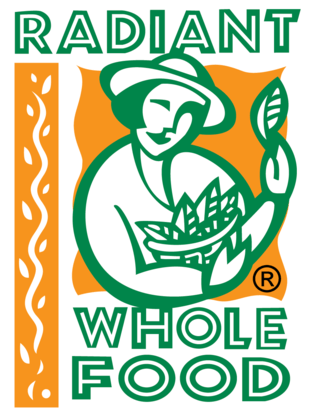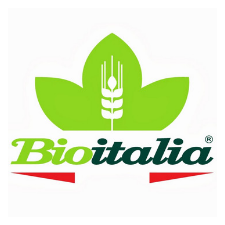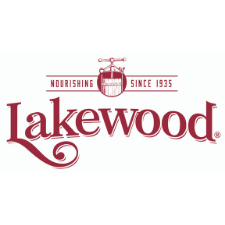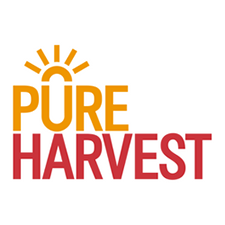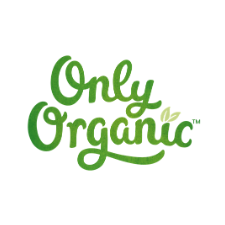Why Buy Organic Food?
What is organic food?
Making a commitment to healthy eating is a great start towards a healthier life. Beyond eating more fruits, vegetables, whole grains and good fats, however, there is the question of food safety, nutrition, and sustainability. How foods are grown or raised can impact both your health and the environment. This brings up the questions: What is the difference between organic foods and conventionally grown foods? Is “organic” always best? What about locally grown foods?
What does “organic” mean?
The term “organic” refers to the way agricultural products are grown and processed. Specific requirements must be met and maintained in order for products to be labelled as "organic".
Organic crops must be grown in safe soil, have no modifications and must remain separate from conventional products. Farmers are not allowed to use synthetic pesticides, bioengineered genes (GMOs), petroleum-based fertilizers and sewage sludge-based fertilizers.
What are Genetically Modified Organisms (GMOs)?
Genetically Modified Organisms (GMOs) are plants or animals, whose DNA has been altered. These products have undergone only short term testing to determine their effects on humans and the environment. In most countries, organic products do not contain GMOs.
Organic livestock must have access to the outdoors and be given organic feed. They may not be given antibiotics, growth hormones, or any animal-by-products.
Is organic food more nutritious than non-organic food?
The evidence is unclear. Some studies suggest that, on average, organically grown fruits and vegetables may contain slightly higher levels of vitamin C, trace minerals, and antioxidant phytonutrients than conventionally grown produce. However, other studies have found no nutritional differences between organic and non-organic foods.
The benefits of organic food
Organic foods provide a variety of benefits. Some studies show that organic foods have more beneficial nutrients, such as antioxidants, than their conventionally grown counterparts. In addition, people with allergies to foods, chemicals or preservatives often find their symptoms lessen or go away when they eat only organic foods. In addition,
Organic produce contains fewer pesticides.Pesticides are chemicals such as fungicides, herbicides, and insecticides. These chemicals are widely used in conventional agriculture and residues remain on (and in) the food we eat.
Why do pesticides matter?
Children and fetuses are most vulnerable to pesticide exposure due to their less-developed immune systems and because their bodies and brains are still developing. Exposure at an early age can cause developmental delays, behavioural disorders, and motor dysfunction.
Pregnant women are more vulnerable due to the added stress, pesticides put on their already taxed organs. Plus, pesticides can be passed from mother to child in the womb, as well as through breast milk. Some exposures can cause delayed effects on the nervous system, even years after the initial exposure.
Most of us have an accumulated build-up of pesticide exposure in our bodies due to numerous years of exposure. This chemical "body burden," as it is medically known, could lead to health issues such as headaches, birth defects, and added strain on weakened immune systems.
Organic food is often fresher.
Fresh food tastes better. Organic food is usually fresher when eaten because it doesn’t contain preservatives that make it last longer. Organic produce is often (but not always, so watch where it is from!) produced on smaller farms near where it is sold.
Organic farming is better for the environment.
Organic farming practices reduce pollution (air, water, soil), conserve water, reduce soil erosion, increase soil fertility, and use less energy. In addition, organic farming is better for birds and small animals, since chemical pesticides can make it hard for birds and small animals to reproduce and can even kill them. It is also better for the people who harvest our food.
Organically raised animals are NOT given antibiotics, growth hormones or fed animal byproducts.
The use of antibiotics in conventional meat production helps create antibiotic resistant strains of bacteria. This means that when someone gets sick from these strains they will be less responsive to antibiotic treatment. Not feeding animal byproducts to other animals reduces the risk of mad cow disease. In addition, the animals are given more space to move around and access to the outdoors, both of which help to keep the animals healthy. The more crowded the conditions, the more likely an animal are to get sick.
|
Organic produce: No Pesticides
|
Conventionally grown produce: Pesticides used
|
Understanding organic food labels.
What do the food labels such as “organic,” "natural," "free-range," and "non-GMO" really mean? Understanding this terminology is essential when you’re shopping for organic foods.
The most important point to remember is that "natural" does not equal organic."Natural" is an unregulated term that can be applied by anyone. Only the "Organic" label indicates that a food is certified organic.
What does certified Organic Food Labels means?
When you’re shopping for organic foods, look for the “Organic” seal. Only foods that are 95 to 100 percent organic can use the term Organic in labelling.
What is 100% Organic?
Foods that are completely organic or made with 100% organic ingredients. May display the organic certification seal.
What does Organic food means?
Foods that contain at least 95% organic ingredients. May display the organic seal.
What does made with Organic ingredients means?
Foods that contain at least 70% organic ingredients. Will not display the organic certification seal. May list specific organic ingredients on the front of the package.
What does contains Organic ingredients means?
Foods that contain less than 70% organic ingredients. Will not display the organic seal or mention “Organic” on the label. May list specific organic ingredients on the information panel of the package.
What does Natural label means?
This label means “minimally processed” and that the food can’t have any artificial colours, artificial flavours, preservatives, or any other artificial ingredients in it.
What does "Certified Organic" mean?
It means that the grower or processor has its farms produce or factory (processed products) certified organic. The operations are entirely audited to ensure it meets the organic standard sets by the International organic certifying bodies. There will be traceable from source to end user on its products to ensure it stays organic all the way. Only when the operations are audited can it then carry the organic certifying body mark or seal.
What Expectations?
It is quite common that people expect organic food to be perfect like conventional food. No flaws and stays the same all the time season to season and batch to batch. And maybe for years!
Due to the nature of organic farming and processing of food products without additives, colouring, food enhancer and stabilizers. Food will be as natural as it can be, so at times, the taste, mouth feel would vary from time to time. Since colouring is not permitted the colour might vary too from batch to batch. At times weevils or insects might happen as the grains and legumes are not treated with chemicals, it is a “ life food” whereby microorganisms not harmful to our health are still alive. It is dormant when stored in a cool, dry place and best when refrigerated. If there is still life in our food it shows that it is not a dead food. Food that has been highly processed, and adulterated are considered dead food as it gives no benefits to our health well being.
